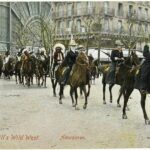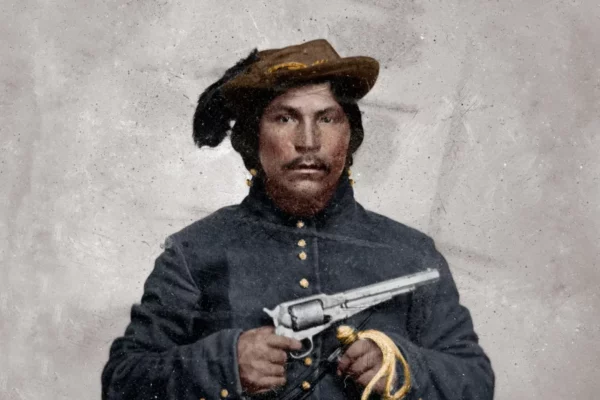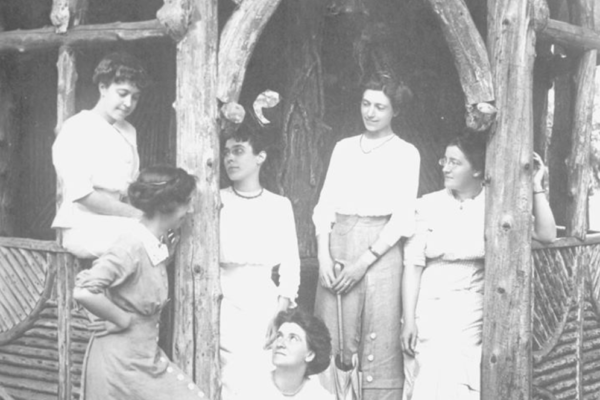
© Metro-Goldwyn-Mayer
What was waiting for Dorothy at the end of the other yellow brick road? Dig deep enough into the lives of history’s icons, and some pretty ugly skeletons are bound to fall out of the closet. Just look at Coco Chanel’s nazi involvement, or, as we discovered today, the pro-Native American genocide essays penned by the author of our favourite bedtime story, The Wizard of Oz…
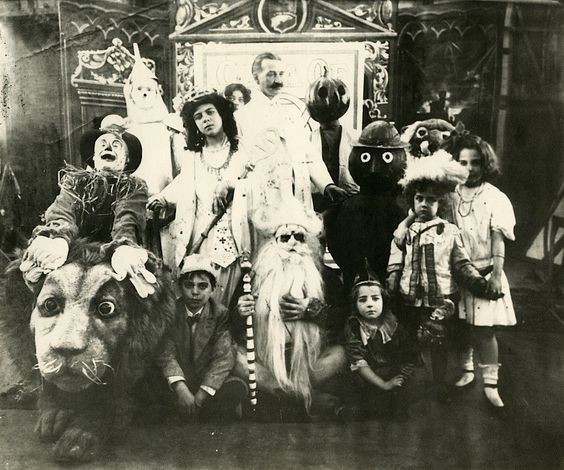
Baum (centre) with a Wizard of Oz cast in 1908.
American L. Frank Baum’s whimsical tale of friendship and flying monkeys was an instant hit when it came out in 1900, and it reached iconic status once the Judy Garland adaptation graced U.S. tellies in 1956. Ten years earlier, however, Baum published two pieces in the Saturday Pioneer calling for “annihilation” of the Lakota people; “Better that they die,” he wrote, “than live the miserable wretches that they are. History would forget these latter despicable beings.”
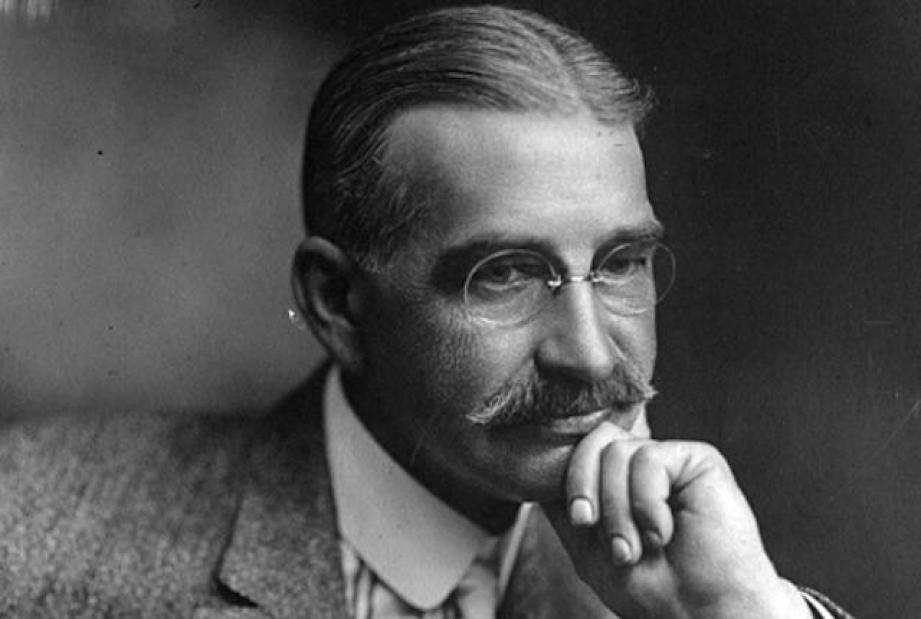
Based in South Dakota, Saturday Pioneer was a newspaper founded and run by Baum himself, who was trying to get his general store and writing career off the ground. The first article was entitled, “The Sitting Bull Editorial,” and appeared on December 20th, 1890, in reflection of the murder of the Lakota tribe leader by police. This is the abridged piece:
Sitting Bull is dead […] The Whites, by law of conquest, by justice of civilization, are masters of the American continent, and the best safety of the frontier settlements will be secured by the total annihilation of the few remaining Indians. Why not annihilation? Their glory has fled, their spirit broken, their manhood effaced; better that they die than live the miserable wretches that they are. History would forget these latter despicable beings […] We cannot honestly regret their extermination […].
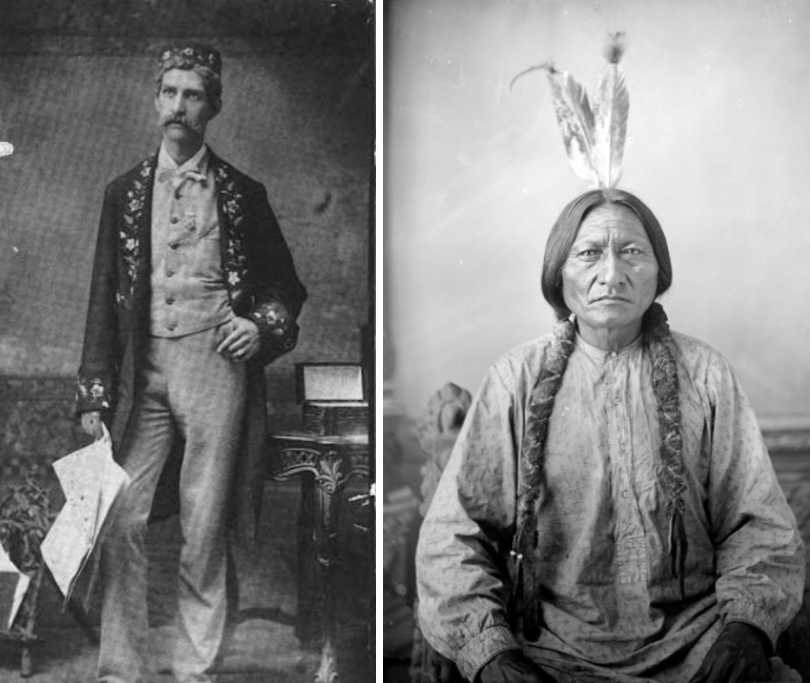
Baum (left) and Sitting Bull.
Another article surfaced after the Wounded Knee Massacre of 1890, in which hundreds of the Lakota. were murdered in present-day South Dakota. “It was a hail of gunfire,” explains historian Dr. Sally Roesch Wagner, “The unarmed Lakota fought back with bare hands. The warriors shouted to their wives, their elders and their children, ‘run for cover,’ Iynkapo! Iyankapo!” Here is an abridged version of Baum’s essay, which appeared in January of 1891 with the title, “The Wounded Knee Editorial”:
[…] The Pioneer has before declared that our only safety depends upon the total extirmination [sic] of the Indians. […] wipe these untamed and untamable creatures from the face of the earth. […] Otherwise, we may expect future years to be as full of trouble with the redskins as those have been in the past. An eastern contemporary, with a grain of wisdom in its wit, says that “when the whites win a fight, it is a victory, and when the Indians win it, it is a massacre.”
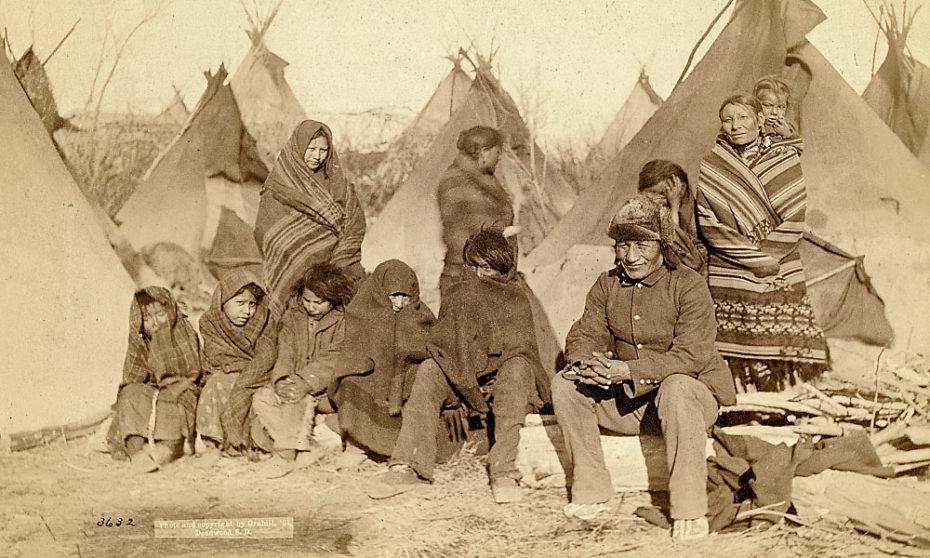
Lakota Native Americans.
The blatant call for genocide of the Lakota made so many historians’ jaws drop, that some wondered if Baum’s words weren’t a kind of black satire, aimed at showing just how barbaric the U.S. government had been with the tribe. After all, other aspects of Baum’s life read like a progressive fairytale: ‘man from the small town of Chittenango marries strong suffragette (yup, his wife Maude was a pioneer for Women’s Rights), then makes it big with a his story of a band of misfits who triumph over evil, etc…”
But Cornell University professor Roger Venables isn’t convinced. For one, there’s a bevy of suspect, often outright racist elements in Baum’s writings (i.e. a children’s story he published in the 1900s featured a racist depiction of a Chinese character). “The ultimate message” in the essays, says Venables, “is genocide.”
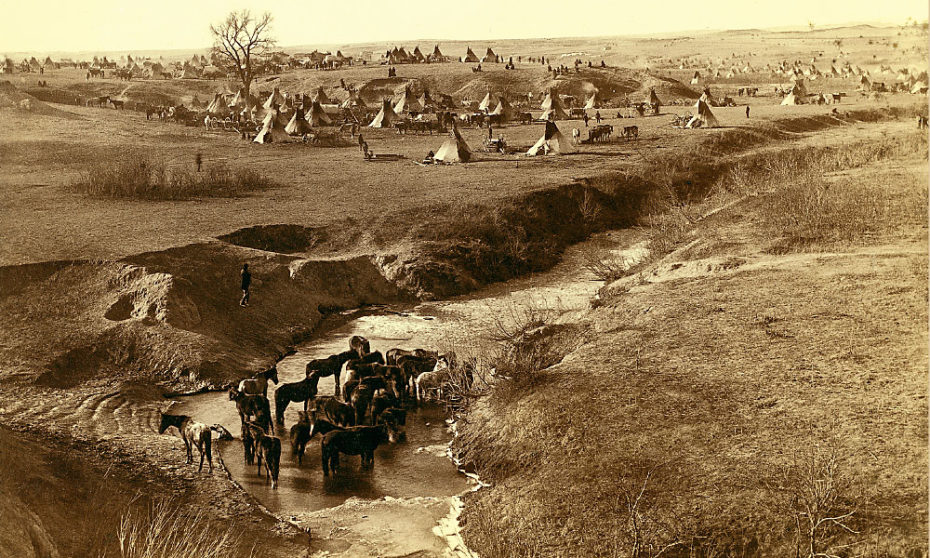
Wounded Knee.
Two descendants of Baum came to South Dakota to officially apologise in 2006. “We’re here to say that we’re sorry, ” they told NPR beforehand, “And to acknowledge these calls for genocide”. The Wounded Knee Massacre Association responded by saying that the trauma of that dark time still reverberates with them, but that they hoped a public apology brings even more visibility to the massacre, so that history won’t forget “how much of a violation of our Human Rights it was.”
Suddenly those lions and tigers and bears don’t seem like the scariest thing about our favourite childhood story after all…



